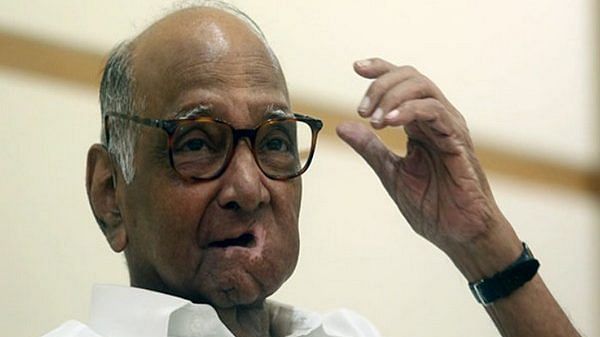Thank you dear subscribers, we are overwhelmed with your response.
As the Nationalist Congress Party chief Sharad Pawar’s nephew Ajit Pawar took oath as deputy chief minister and joined the government of Maharashtra on Sunday (July 2, 2023) afternoon, the media in both print and electronic (television and YouTube) were abuzz sensationalising the event. The supporters of the Bharatiya Janata Party (BJP) were analysing it as a masterstroke that would improve its tally of parliament seats (in the present house, it has 23 seats from the state) in the coming 2024 general elections. Whereas, the critics of the government at centre gave an account of how this has been happening in different states of the country after the BJP formed the government in 2014, and held it responsible for misusing its power.
However, the political observers explain that such incidences were not uncommon and, they have been happening in different states since India began practicing modern democracy after Independence. They reminded the people that when ‘Operation Kamala’ happened in Karnataka in 2008, the top leaders in the present set-up were not calling the shots in the party. Hence, blaming a few select individuals for all the wrongs taking place in recent times in politics in the country is unfair to them. Elucidating further, they stress the fact that, the ‘power’ is central to any political party in a democracy, and using all the possible means to acquire it remains the nature of its strategists.
In this instance, it is debated how the ‘anti-defection’ law is violated and the office of the Enforcement Directorate (ED) is misused. As for the common voters are concerned, they are not in a mood to sympathise with the political leaders and buy the much talked about ‘biased’ role of the governors and the speakers either in any one party’s favour. They believe that the system permits it to occur with ambiguous and toothless anti-defection laws in place. It leaves them wondering, why the political class does not come together and vouch for a stringent amendment to end undemocratic politics for good.
Besides, they expect political leaders to make an earnest beginning by declaring electoral reforms a main agenda in the forthcoming 2024 general elections. The least the citizens want is a provision for a ‘right to recall’ the legislators elected by them. They question when the parties have a provision of ‘whips’ to control their legislators, why they are denied such a luxury that would go well in strengthening the democracy in the country.
Concerning misuse of institutions, an interesting argument is floated by the critics of the BJP. According to them, Ajit Pawar’s joining the government in the state would make the majority of the Shiv Sena Members of the Legislative Assembly (MLAs) supporting the chief minister Eknath Shinde insecure, and force them to dump the government and go back to their original party fold. The point to note here is that, when the MLAs belonging to the chief minister’s faction sided with BJP in 2022, it was vehemently argued that, they buckled under EDs pressure. If it had been true, how could they now become fearless overnight and shift their allegiances? This kind of self-contradicting proposition leaves people assuming the claims made by the opposition regarding the ED are driven by their wishful thinking.
At the same time, common public feel puzzled, as to why any leader has to be fearful of investigative agencies when one is clean and claims to have joined politics to serve the society. They are convinced that, if today one set of politicians are at the receiving end, it could be the corrupt leaders of the other side when regime changes. Further, they question, why should there be a hidden understanding between the political leaders of different parties to not act on allegations of corruption against them. They believe that, in future, the fear of strict action against those in public life indulging in corrupt practices may act as a deterrence to force the respective political parties to give tickets in elections to individuals with clean reputation to represent the people.
The detractors of the BJP acknowledge that this kind of conviction among the common citizens is a result of the fact that they strongly believe in Prime Minster Narendra Modi’s personal integrity and clean image. On the other side, the attitude of the members of the clans of the regional parties who consider it their right to remain in supreme positions in their parties for life and pass on the baton to only their offspring is not going well with the leaders within their parties and the masses alike because it defies the basic tenets of a democracy.
Madhusudan Bandi (madhusudan_bandi@gidr.ac.in) is a faculty member with the Gujarat Institute of Development Research, Ahmedabad.
These pieces are being published as they have been received – they have not been edited/fact-checked by ThePrint.

